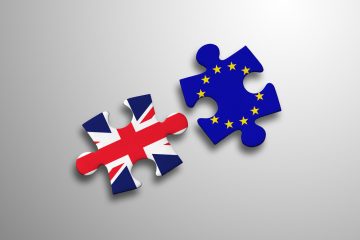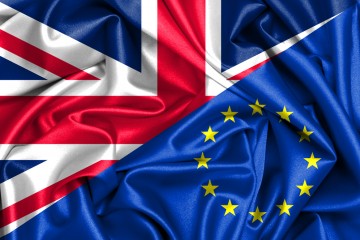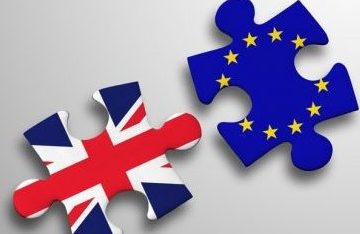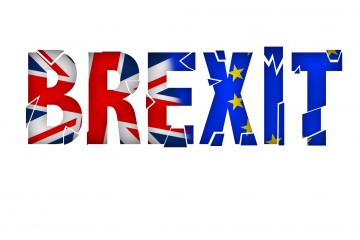
In a democracy, no decision should ever be irreversible
The British parliamentary system, inspired by John Locke, Edmund Burke, John Stuart Mill and many others who believed in a system of checks and balances to guarantee our liberties, has in the past been much admired as a model of liberal democracy, one that has enabled the peaceful evolution that has been an almost unique part of our history. Today it has been superseded. The doctrine of Jean-Jacques Rousseau, that the will of the people must always prevail, much admired by autocrats ever since the days of Robespierre and the Committee of Public Safety, now prevails in Westminster instead. Speaker after speaker in the House of Commons debates on Article 50 declared that, although he or she voted Remain and …

The will of the people: A primer in direct democracy
of the United Kingdom of Great Britain and Northern Ireland, having been given sovereignty over whether the Kingdom leaves or remains in the European Union insist, in the interest of democracy and unity, on being given the opportunity to take an informed decision on the final outcome of the Art. 50 negotiations, as approved by parliament, through a referendum to either accept this outcome or to remain in the European Union. THE REFERENDUM PREDICAMENT A lot has been made in the press and in the recent parliamentary debates about the moral obligation for members of parliament to respect “the will of the people” as expressed in the narrow victory for leaving the European Union in the Brexit referendum of last …

Brexit arithmetics: A logical approach to predicting a Brexit deal
Do we know more now about the likely shape of the future Brexit deal? While Theresa May’s speech has provided some much-needed clarity on the British position, her uncompromising stance on the single market could make the deal yet more unpredictable. In the configuration sketched out today, the eventual result will depend even less on what Theresa May wants and even more on what the rest of the EU will give her. Commentators tend to argue that there are too many unknowns to figure out the positions and bottom lines of the 27. But nevertheless, the fundamentals are arguably simple enough to be described in three short equations, each of which gives us a clue about an eventual Deal UK (Duk). Equation 1: …

Populism on the Rise? The Brexit Vote and Beyond
The outcome of the British referendum on European Union (EU) membership has sent shockwaves across the globe that are still reverberating. Politically, the two major political forces in Westminster, the Conservative and Labour parties, are in disarray about how to shape UK’s ongoing relationship with the EU once we leave. Prime Minister Theresa May faces the daunting task of organising the British exit from the EU whilst keeping her party and country together. There are question marks over not only Britain’s new relationship with the EU, but also our partners within the British Union. Hot on the heels of the Brexit vote came the election of Donald Trump as president of the United States of America. This has been widely …

Brexit: after the posturing, the EEA?
When Britain will put forward its Brexit proposing in the spring of 2017, it should consider membership in a reformed European Economic Area, argues Michael Starks. Economic stability within a reformed EEA, which recognised the legitimate concerns of non-EU countries over open-ended migration from the EU, could provide either an interim or a permanent status for the UK in 2019. In 2017 the UK will put its opening Brexit proposal to the other 27 members of the European Union. On present evidence, the British government will ask for an agreement tailor-made for Britain, not something off-the-shelf. Theresa May, the prime minister, will look to forge a deal combining control on immigration numbers from EU countries whilst also maximising, sector by …

The Impact of Brexit on Europe-China Relations
The decision of the United Kingdom (UK) to leave the European Union (EU) in the referendum of June 23rd 2016 has reverberations well beyond Europe as a political and economic shock of substantial proportions. The future relationship of China, both with the remaining member states of the EU and with the UK, is one example of how a domestic political decision is having global ramifications as change ripples through the international system. Overarching any analysis about the impact of Brexit must be a sense of caution about what still remains unknown over the shape of future policy outcomes. Two cross-cutting factors are particularly important: the first is a legal and political one – what will the resulting settlement between the …

The 1975 Referendum on Europe
The United Kingdom joined the European Economic Community (as it then was) on 1 January 1973 after negotiations by the Conservative government led by Edward Heath. In the run up to the subsequent 1974 General Election the Labour Party pledged, in its manifesto, the United Kingdom’s first nationwide referendum on whether to stay part of the Economic Community on renegotiated terms or to completely part company. With a Labour victory, the new Prime Minister, Harold Wilson, followed through on his promise and a referendum was held on 5 Jun 1975. The outcome was an overwhelming victory (67%) for the ‘In’ campaign. The 1975 vote in favour of Europe did not, however, end the debate on the United Kingdom’s membership of what …

The case for uk parliamentary oversight of negotiation of the brexit agreements
On 6 September 2016 Professor Derrick Wyatt QC presented evidence to the House of Lords EU Select Committee on Parliamentary Scrutiny of the Brexit negotiations. In this article, Professor Wyatt summarises his contribution. A video of the oral evidence session is included below the article. When the uk triggers article 50, formal negotiations on a withdrawal agreement and a future trade agreement will begin When I last wrote for this blog about Brexit and the Article 50 process, shortly after giving evidence to the House of Lords EU Select Committee, I was writing about something that might happen. Now, more than two months after the referendum decision to leave the EU, I am writing about something that will happen. Once Article 50 …









